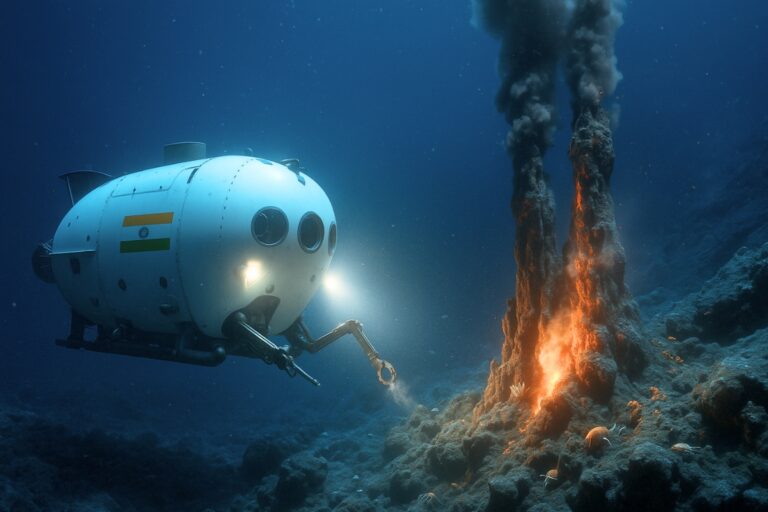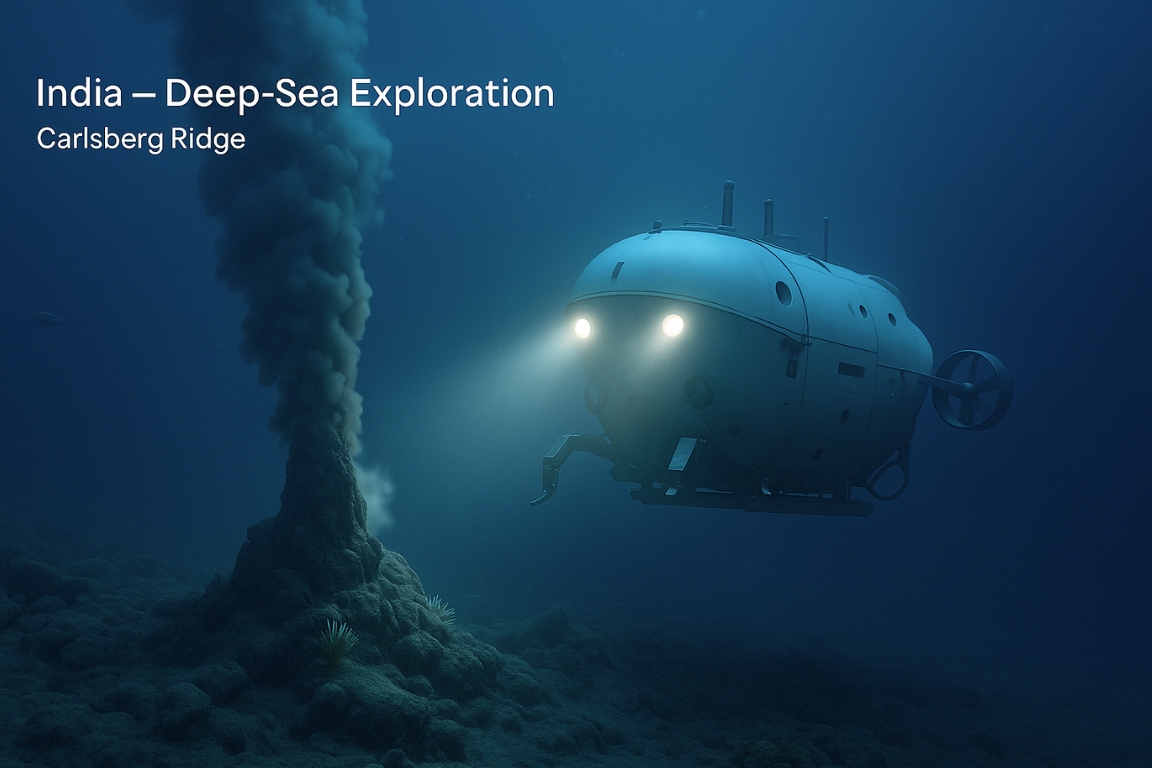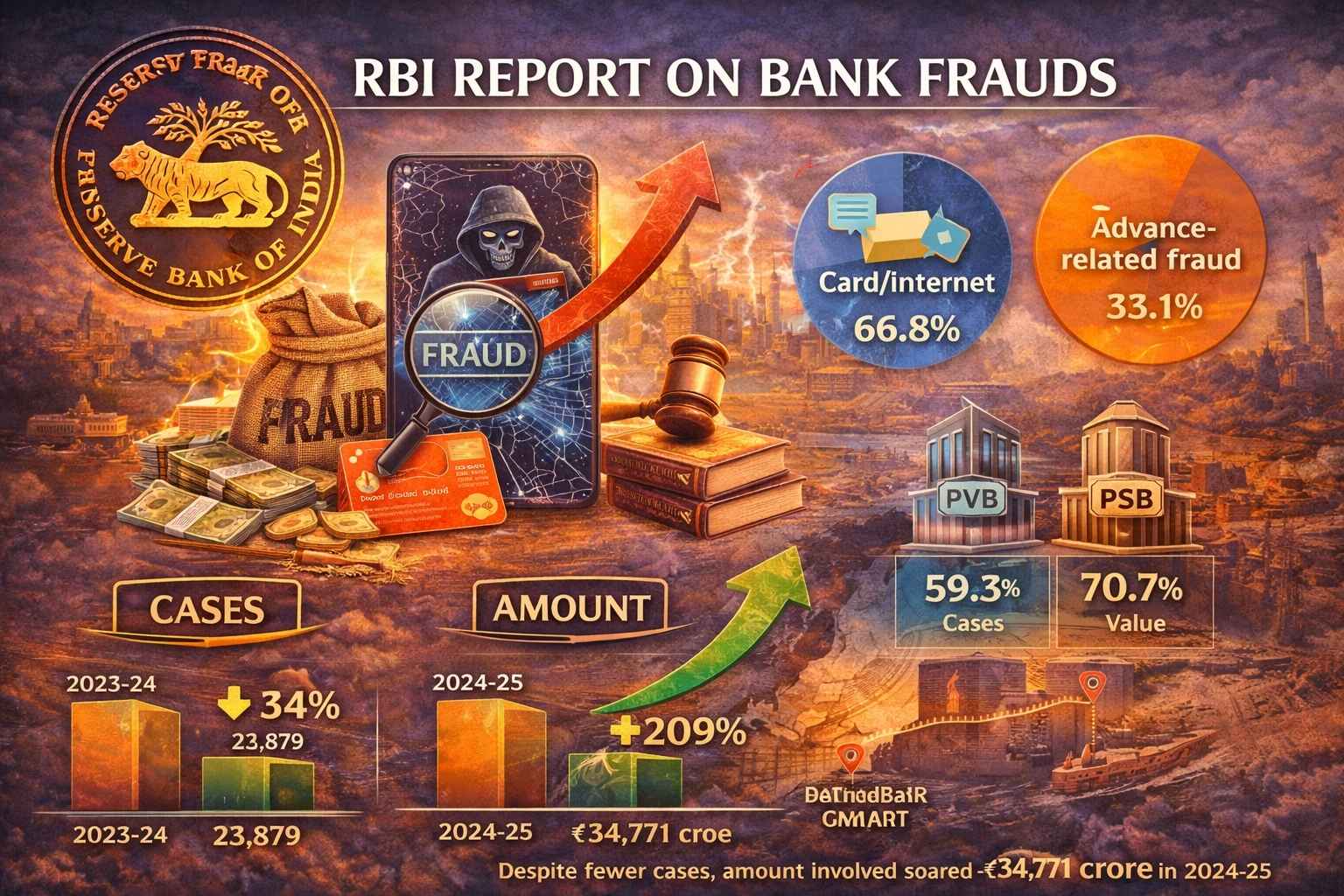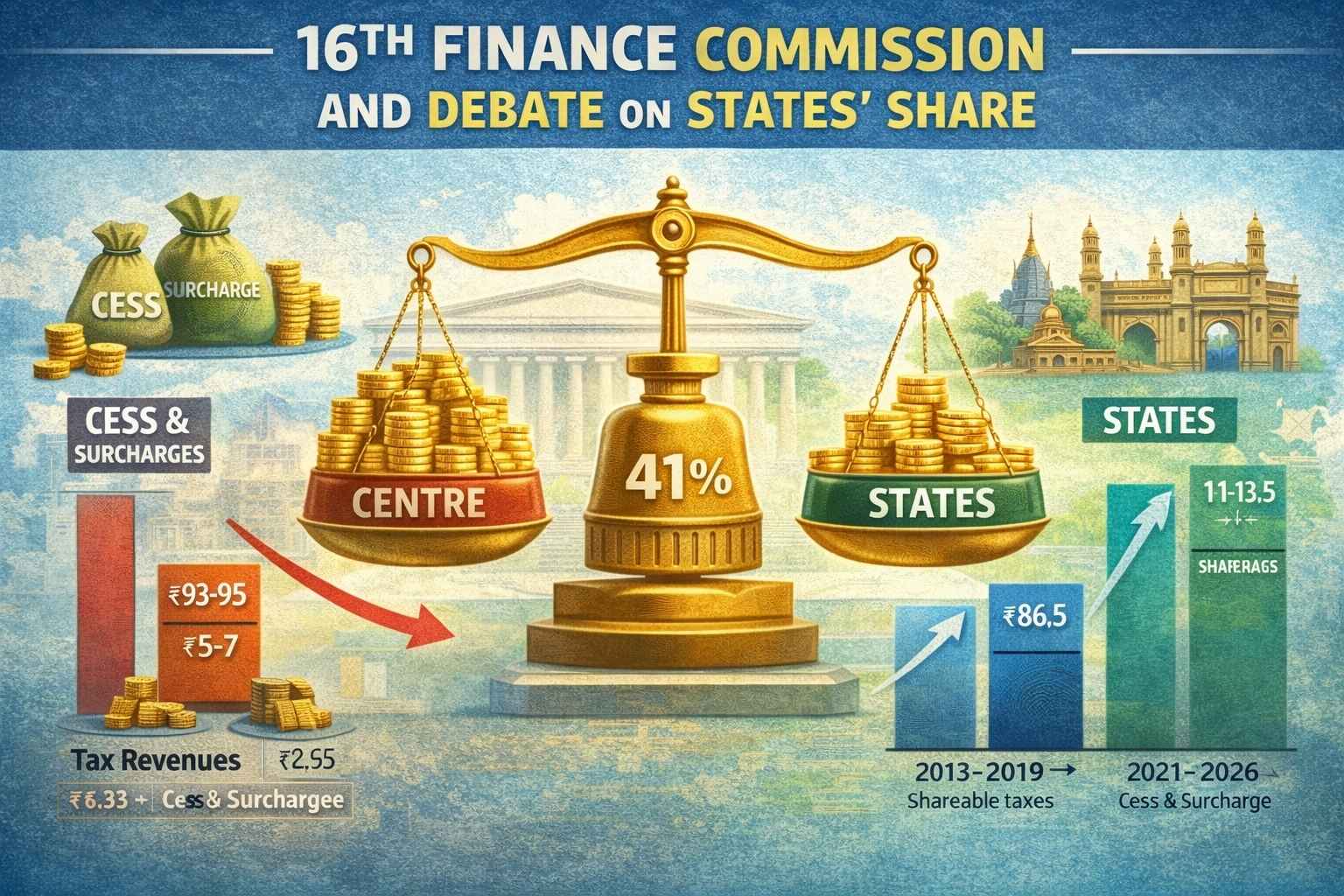India has received its first-ever global licence from the International Seabed Authority (ISA) to explore polymetallic sulphides in the Carlsberg Ridge of the northwest Indian Ocean.
Background
- Polymetallic Sulphides (PMS): Mineral-rich rocks found in the deep ocean, containing manganese, cobalt, nickel, and copper, crucial for clean energy technologies.
- Carlsberg Ridge: A 3,00,000 sq. km area in the Arabian Sea forming the boundary between Indian and Arabian tectonic plates.
- ISA Mandate: Any country wishing to explore mineral resources in the high seas must obtain licences from the ISA, headquartered in Jamaica.

Challenges in Deep-Sea Exploration
- Technological hurdles: High-pressure and low-temperature conditions at great depths.
- Environmental concerns: Potential damage to marine biodiversity and ecosystems.
- Geopolitical disputes: Competing claims by neighbouring countries (e.g., Sri Lanka in ANS).
- Economic viability: High exploration and extraction costs compared to land mining.
- Regulatory uncertainty: Global debate on sustainable seabed mining practices.
India’s Initiatives
- Deep Ocean Mission (DOM): Launched by the Ministry of Earth Sciences for deep-sea exploration, biodiversity studies, and climate monitoring.
- National Institute of Ocean Technology (NIOT): Developing submersibles and mining technologies.
- International Partnerships: Engaging with ISA and collaborating with other deep-sea capable nations.
- Polymetallic Nodule Programme (PMN): Ongoing since the 1980s for exploration of manganese nodules in the Central Indian Ocean Basin.
Way Forward
- Sustainable exploration: Balance economic interests with ecological safeguards.
- Technology development: Indigenous deep-sea mining tools and manned submersibles.
- Diplomatic engagement: Resolve competing claims through UNCLOS and ISA mechanisms.
- Monitoring and regulation: Strict environmental impact assessments before commercial mining.
- Strategic autonomy: Strengthen India’s leadership in the global seabed governance system.
LAWS AND CONSTITUTIONAL PROVISIONS
- UNCLOS (1982): Defines maritime boundaries, high seas exploration rights, and continental shelf claims.
- UNCLOS Article 76: Permits countries to claim up to 350 nautical miles of continental shelf; Bay of Bengal states may extend up to 500 nm.
- Environment (Protection) Act, 1986: Regulates activities with potential ecological impact.
- Biological Diversity Act, 2002: Protects marine biodiversity.
- Constitutional Provisions:
- Article 48A: Directive to protect and improve the environment.
- Article 51(c): Obligation to respect international law and treaties.
- Article 253: Parliament’s power to make laws to implement international agreements.
Conclusion
India’s ISA licence strengthens its position in the global seabed resource race. However, success will depend on sustainable exploration, technological innovation, and adherence to international law.





